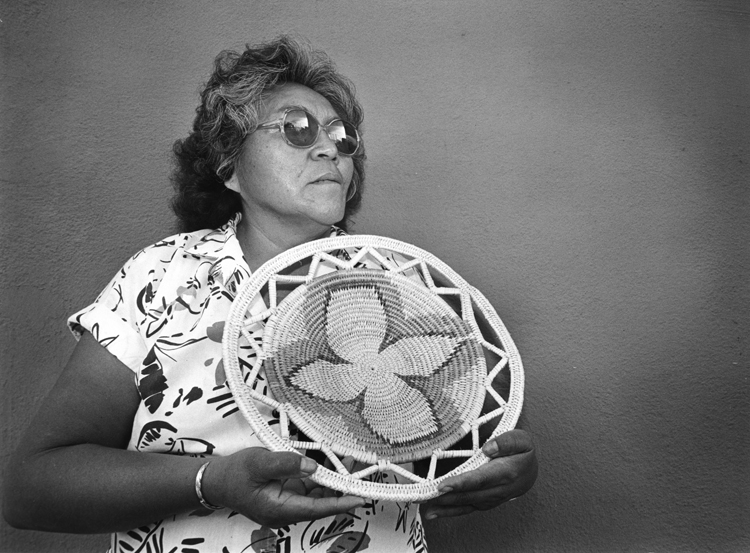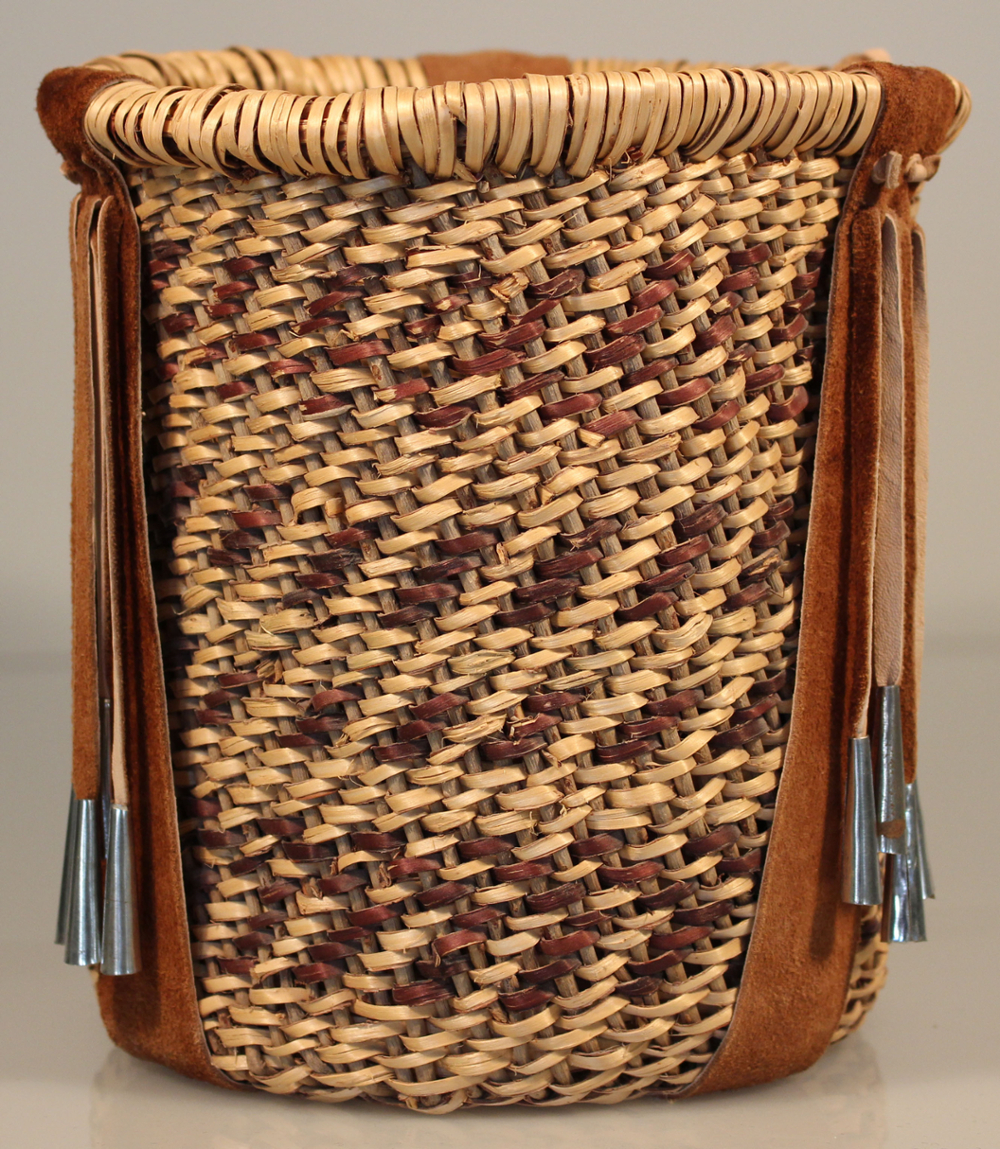Inspired by and in collaboration with Dr. Georgina Badoni’s MatriArt project to elevate the voices of contemporary Native women artists and mothers, the University Museum is highlighting stories of Native motherhood, education, tradition, and resistance from its collections. The various stories associated with the collections pictured here represent moments in the lives of Native women—among them mothers and daughters, grandmothers and aunts, sisters and wives. These formidable women carried on and evolved both cultural traditions and their own families through their work. We are honored to share their stories and their art. Today, we highlight the work of Jicarilla Apache artist Lydia Pesata.

Basket maker Lydia Pesata from Dulce with Jicarilla Apache coil basket at Indian Market, Santa Fe, New Mexico, 1991. Photograph by Laura Husar. Courtesy of the Palace of the Governors Photo Archives (NMHM/DCA), HP.2014.14.665.
Jicarilla Apache artist Lydia Pesata wove the basket pictured below with diagonal patterns and jingling fringe in 1990. Although she has lived her entire life in Dulce, New Mexico on the Jicarilla Apache reservation, Pesata went to government boarding schools until she was 18 years old. As a result, Pesata says “I never knew art existed then, especially Apache arts and crafts.” She began to weave baskets after getting married and watching her grandmother-in-law Tanzanita Pesata (1995-1968), a renowned weaver in the community. Lydia Pesata said of Tanzanita, “I really do appreciate this dear old lady because she helped me get where I am today. Tanzanita gave me a few pointers now and then; the rest was up to me.” Pesata continued to learn and build her skills as a basket weaver, all while raising five children. She built a reputation as one of the foremost Jicarilla Apache weavers, and passed on her knowledge of techniques and vegetable dyes to other women in the community under the Jicarilla Apache Department of Education. She won the New Mexico Governor’s Award in 1988 in recognition of her work preserving and evolving Jicarilla arts.

Twined burden basket by Lydia Pesata. 2020.01.01, University Museum. You can read more about this basket in the University Museum's collection here.